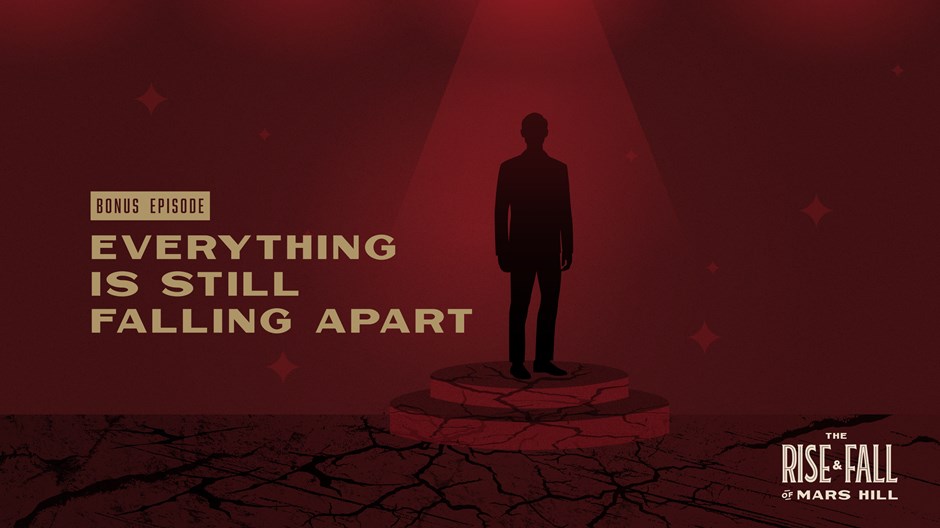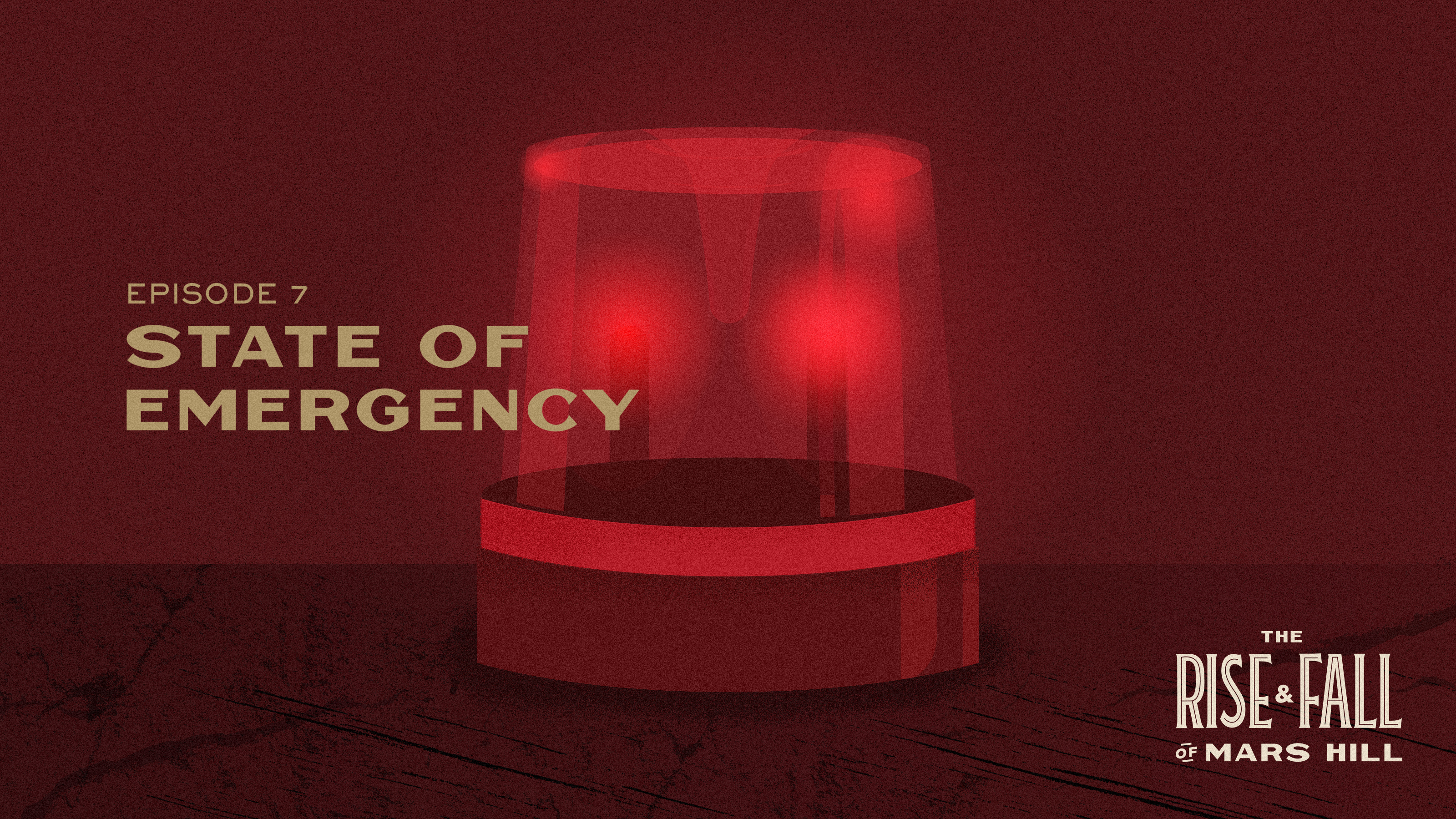Dear Paul and Bent,
We want to publicly confess our sin against you regarding events that took place at Mars Hill Church back in 2007. We were wrong. We harmed you. You have lived with the pain of that for many years. As some of us have come to each of you privately, you have extended grace and forgiveness, and for that we thank you. Because our sin against you happened in a public way and with public consequences, we want to make our confession public as well with this letter.
On September 30th 2007, you were both terminated from your employment as pastors at Mars Hill Church. Your status as elders of the church was suspended, according to the church’s bylaws at the time, pending an investigation of your qualification for eldership. It’s hard to imagine just how disorienting and painful this experience must have been for you. That night, Bent, you called Mike Wilkerson, your direct supervisor, to let him know that you’d been terminated. Within hours, Paul, you emailed all of the elders to notify us of what had happened to you that night. We had the opportunity and the responsibility to intervene, to care, to listen to you, and to make sure that any harmful treatment against you was corrected. Instead, we allowed the process of your investigation and trial to continue unimpeded and we participated in it. By failing to intervene and by participating in that process without protest, we implied to the members of Mars Hill Church, to each other, and to you and your families that your termination was above reproach. We stood by as it happened, and that was wrong.
We now believe that you were grievously sinned against in that termination. We believe that the termination meeting’s content and tone was abrupt, one sided, and threatening. Hearing each of you recount your experiences of this meeting is shocking and sad. By failing to intervene, we enabled a growing trend of misuses and abuses of power and authority that would be feared and tolerated by the rest of the church’s eldership. We now understand that these sorts of overpowering actions against elders were some of the very concerns that you had each expressed regarding some of the pending proposed changes to the bylaws. It is tragic that you were proved right by your own experiences. The harm permitted by our failure to protect you has had a devastating and lasting impact on you, your families, Mars Hill Church, and the watching world.
Paul, On October 15, 2007, all twenty-three elders at the time—including most of us signers of this letter—voted that you were in violation of the biblical qualifications of eldership. The alleged violations included a “lack of trust and respect for spiritual authority”. All but two of the elders then voted to remove you from eldership based on these perceived violations.
We now believe our decisions were invalid and wrong. The entire investigation and trial process was skewed by the implication that your termination was above reproach and for just cause. If there had been sin in your life that might have warranted a warning about possible disqualification from eldership, we should have patiently, carefully, and directly addressed it with you before the matter became so extremely escalated. By reporting our wrongheaded assessment to the church, we put doubt about your character in the minds of church members, though you had done nothing to warrant such embarrassment and scrutiny. By doing this, we misled the whole church, harmed your reputation, and damaged the unity of the body of Christ.
Bent, On October 29, 2007, all twenty-three elders at the time—including most of us signers of this letter—agreed that you were guilty of “displaying an unhealthy lack of trust in, and respect for, the senior leadership of Mars Hill Church”. We also unanimously approved that, based on your repentance, you would remain an elder of the church on probation.
Bent, we were wrong to have called you guilty of lacking trust and respect for the senior leadership of the church when you had good reasons for challenging the church’s senior leadership. We were wrong to have insisted that you repent of this lacking trust as a condition of your continued eldership, because it was not sinful on your part in the first place.
Bent and Paul, you each had every right as an elder to openly express your strong concerns about the bylaws and to influence our thinking so that we might have made the most informed decision possible. You also had good reason to contact the church’s attorney about those bylaws. These were not sinful acts of mistrust on your part, but reasonable acts of due diligence. We needed to learn from you at that time and we should have trusted you and respected your spiritual authority as elders of the church to educate us about potential problems with those bylaws. Instead, we silenced your voices through our complicity in your terminations and our decisions to remove Paul as an elder and keep Bent on probation instead of examining the issues more closely.
Paul, On December 5th, 2007 those of us who were elders at the time voted to instruct the members of Mars Hill Church to treat you as an unrepentant believer under church discipline after you had resigned your membership from the church. This treatment was to have included “rejection and disassociation” in the hope that you would “come to an acknowledgment of [your] sin and repent.” This instruction was given with the weight of all twenty-seven elders at the time. This disciplinary rejection led to great loss to your family in extreme financial hardship, sudden loss of long standing friendships, spiritual and emotional trauma to your family, and the public shaming of your character. We share responsibility for those losses due to our participation in the vote.
A church disciplinary act of this magnitude is extreme. It’s perhaps the most powerful that can be enacted upon a pastor. We now think that motion was hasty and harmful. We should have challenged the motion rather than approving it. Instead, we used our voting power as elders in a way that resulted in further harm to you. Further, we brought disrepute on the Church and its responsibility to exercise church discipline in a godly, loving and redemptive way. We failed to love you as a fellow elder and brother in Christ.
Confessing our sins against you has been a process that has taken us some time. We have engaged in self-examination, challenged our memories of what happened by reviewing the documents and interviewing one another, and spent time listening to you and your wives tell your heartbreaking stories. Many of us have met personally with each of you over the years to confess our sin and to seek forgiveness for our sinful actions and inaction. We don’t intend to convey by this letter that we are the only elders or former elders who’ve come to similar conclusions, and we hope that in time, the others will join us in public confession. Our desire is to clear the reproach from your names.
We hope that our confession also brings healing to the many past and present members of Mars Hill Church whose hearts were broken for you and your families as a result of our sin. As part of our commitment to walk in repentance, we invite anyone who has been impacted by our sins against you to contact any of us so we can continue to walk in repentance by listening, confessing, and asking for forgiveness.
Paul and Bent, we are sorry for our sinful behavior toward you, for harming you, and for bringing shame to Christ’s church. We hope that you will forgive us. May the peace and grace of our Lord heal our hearts.
Signed,
Mars Hill Elders as of October, 2007
—Scott Thomas
—Dave Kraft
—Gary Shavey
—Steve Tompkins
—Brad House
—Phil Smidt
—Mike Wilkerson
—James Harleman
—Lief Moi
—Adam Sinnett
—Jesse Winkler
—Zack Hubert
—Tim Reber
—James Dahlman
—Dick McKinley
Additional Mars Hill Elders as of December 5th, 2007
—Jon Krombein
—Matt Johnson
—Joe Day
✠
LINK to the letter: HERE


